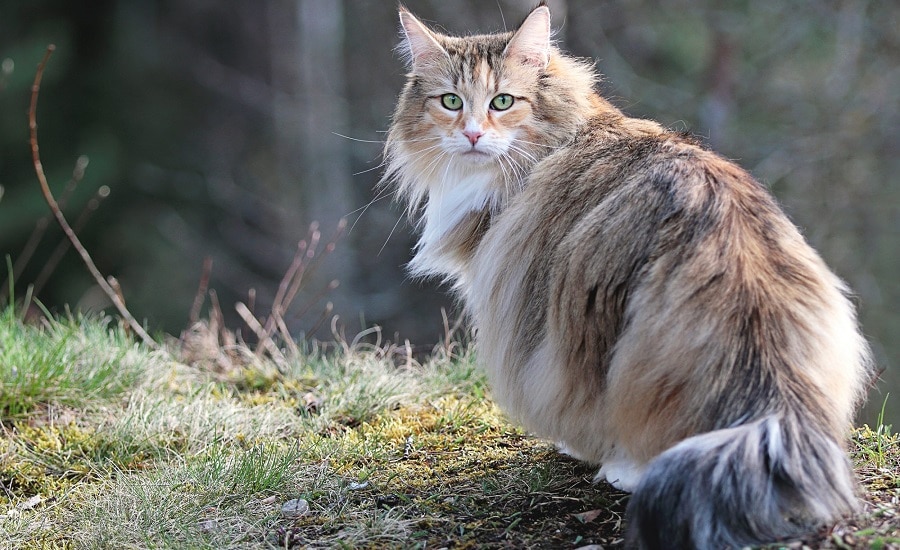
Norwegian Forest Cats are popular because of their ultra-fluffy looks, which makes you want to pick them up and snuggle them all the time! However, if you are considering adopting one of these cats, make sure you are completely prepared.
They can take up to 4 years to achieve full size, but once they do, they are much larger than other domestic cats. Norwegian Forest Cats like playing and are well-known for their climbing skills. While they still prefer to be self-sufficient, they still like mingling with people.
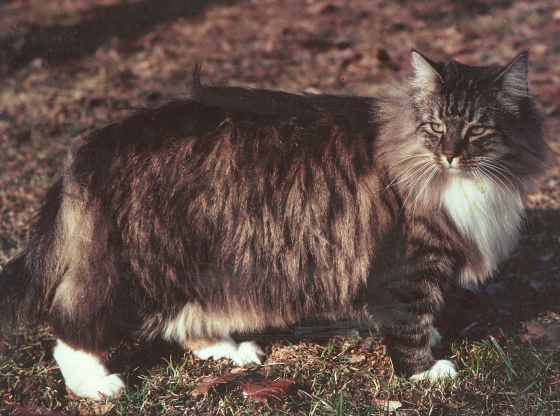
This cat breed is thought to have existed since the Viking era. Images and descriptions of cats that resemble the Norwegian forest cat date back to the 16th century, and the breed even appears in a Norwegian fairy tale about the Norse goddess Freya, with two enormous Norwegian forest cats dragging her chariot. Due to promiscuous cross-breeding with other species of cats, the breed was practically extinct by the turn of the twentieth century.
Norway’s King Olav V declared the Norwegian forest cat to be the country’s national cat breed in 1938. Breed enthusiasts in Norway eventually succeeded to save the breed and increase its numbers through careful breeding procedures after decades of effort.
In 1979, the first Norwegian forest cats were brought to the United States. The breed was accepted for championship status with The International Cat Association in 1984.
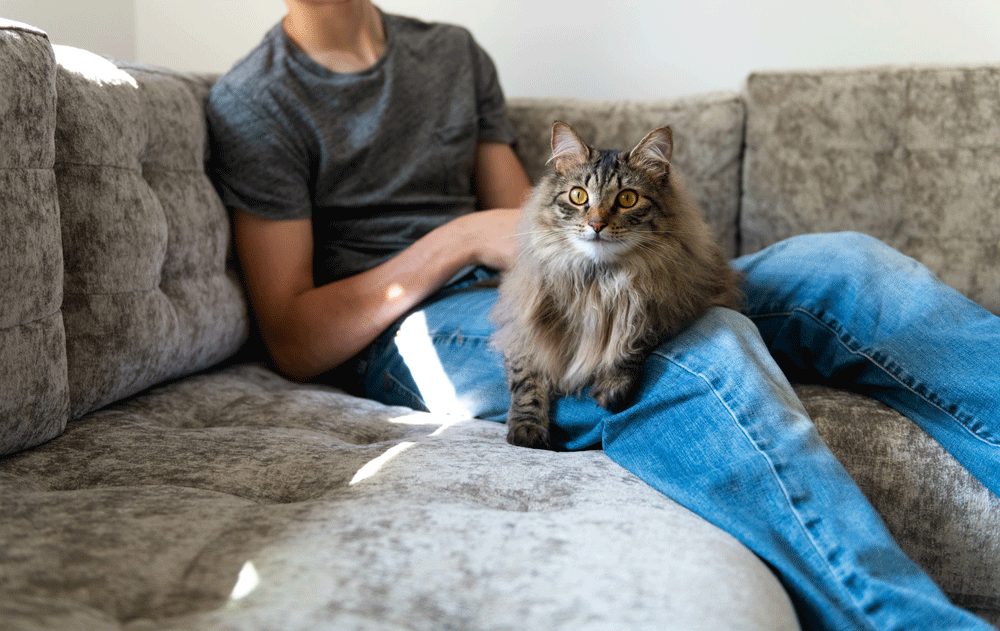 The Norwegian Forest Cat has a lovely, caring personality. She values compliments and enjoys interacting with her parents. Once she embraces her parents as her own, she becomes a devoted companion and unites with them.
The Norwegian Forest Cat has a lovely, caring personality. She values compliments and enjoys interacting with her parents. Once she embraces her parents as her own, she becomes a devoted companion and unites with them.
The Norwegian has never lost sight of her roots. She’ll always be a hunter at heart. She enjoys chasing toys around as if they were real. She is territorial and patrols multiple times a day to ensure that everything is in order.
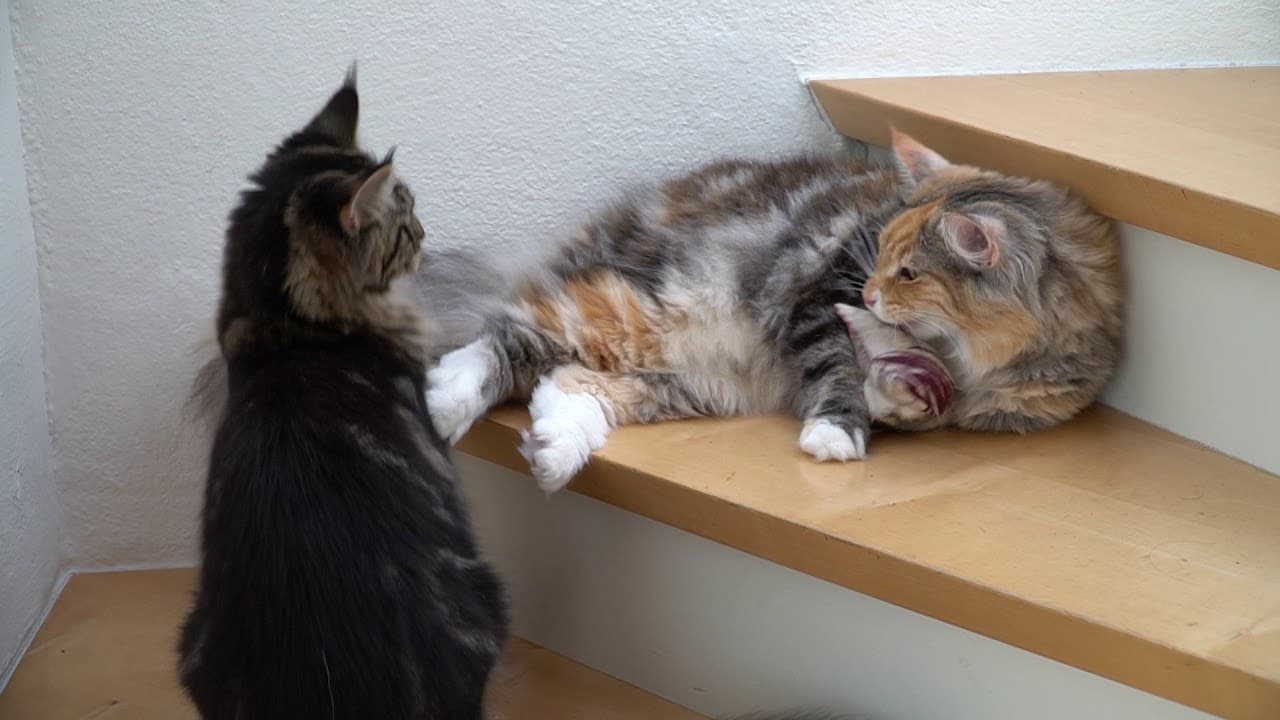
Norwegian Forest Cats are wonderful family pets since they are playful, friendly, sweet, and human-oriented. They are generally peaceful and do not keep their owners up at night with excessive meowing. Their charming and have a loving attitude with people, children, and other animals allows them to integrate into a variety of different families.
Because Norwegian Forest Cats are natural climbers, providing them a specific cat tree to keep them from scaling your drapes or the back of your sofa is a good idea! Their lively and playful personalities can last for years after they reach adulthood, although their energy levels are on par with the ordinary cat.
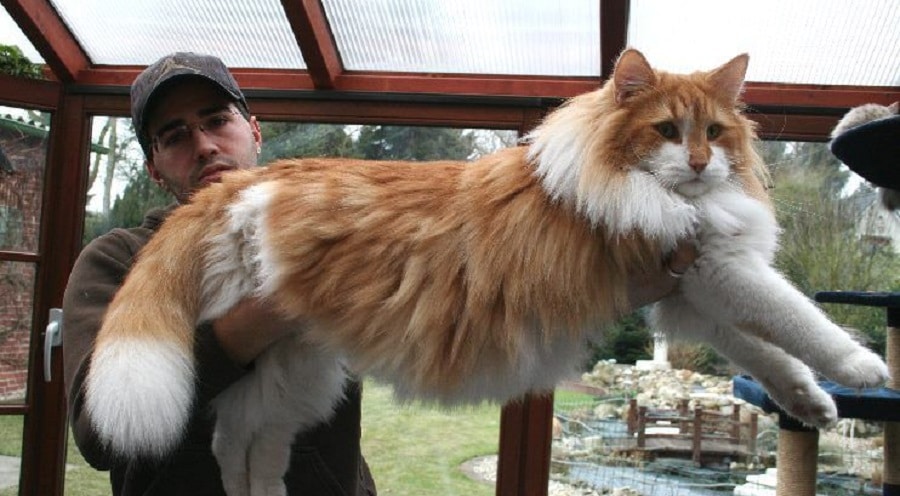
These are huge cats. Males can weigh up to 22 pounds, while females are slightly smaller. It grows slowly and does not reach full maturity until it is five years old.
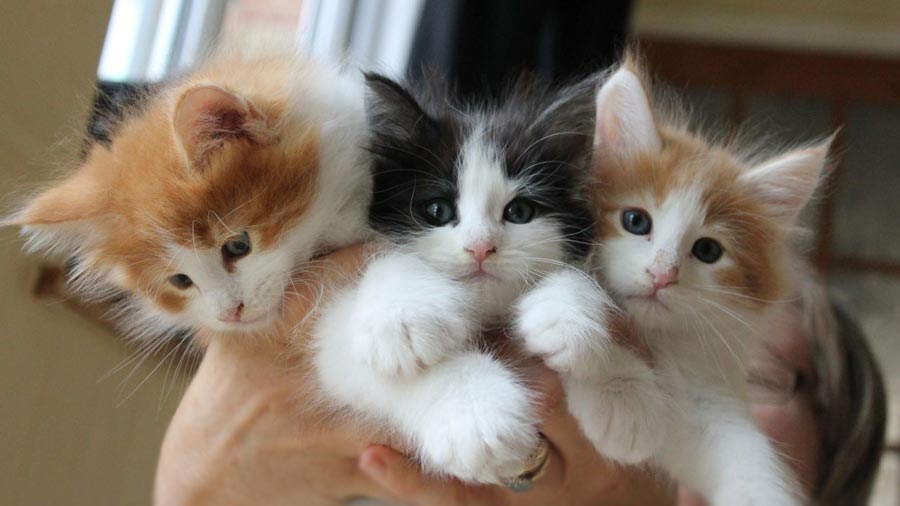
The eyes of Norwegian Forest Cats will be blue, orange, or green. Norwegian Forest Cats are recognized for having a wide variety of coat colors and patterns, including:
The Norwegian Forest Cat is a huge, well-boned cat with a thick coat. She is robust and has the image of a hunter. Her head is triangular, and her neck is robust and muscular. The chin is firm yet somewhat rounded, and the ears are medium in size. The Norwegian’s back legs are slightly higher than its front legs. Legs with a lot of muscle.
The Norwegian appear even larger than she is due to her abundance of fur. The breed has a thick and lengthy coat. When the breed was living in the wild, its coat provided natural protection for her. The coat has a smooth feel to it, and the length changes greatly depending on the season. The tail’s fur is similarly long and bushy in appearance.
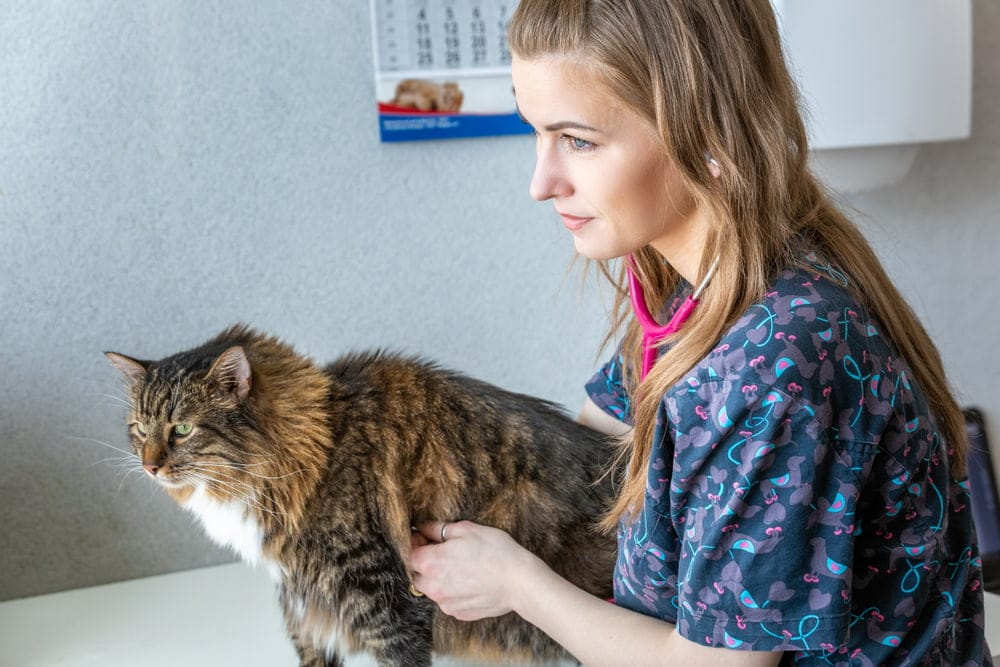
Both pedigreed and mixed-breed cats have different levels of health issues that could be genetic. Norwegian Forest Cats are generally robust, living for 14 to 16 years on average.
Any cat can acquire health problems over the course of its life, but some pedigreed cats have known congenital problems that can be passed down to kittens. Hypertrophic cardiomyopathy, hip dysplasia, and glycogen storage disease type IV are all common in the Norwegian forest cat. Hypertrophic cardiomyopathy (HCM) is a condition in which the heart walls thicken.
Cats with HCM have the most common kind of cardiac disease. Hip dysplasia (looseness of the hip joint) is less prevalent in cats than in dogs, but some larger, heavier breeds, such as the Norwegian forest cat, are susceptible. A faulty enzyme causes Glycogen Storage Disease IV (GSD IV), which results in organ failure, muscular atrophy, and death. Reputable breeders keep an eye on the health of their adult cats and avoid breeding cats with health issues.
No, this breed is not hypoallergenic but they cause a less allergic reaction than other cat breeds.
This breed is a wonderful family cat and goes well with kids, adults, and other pets.
Depending on age, pedigree, location, and other conditions, Norwegian forest cats can cost anywhere from $800 to $1,500.
The Norwegian Forest cat is a big, loving cat that would make a wonderful addition to any household. It’s friendly, gets along with other pets and children, and will greet you at the door when you return home. Because it likes to climb, you’ll want to set up a few perches around your house and prepare your lap to be a popular resting spot for a 20-pound cat. It has few health issues and a long lifespan, so it will provide you and your family with many happy years. We hope you find this information to be informative and useful in answering your questions.